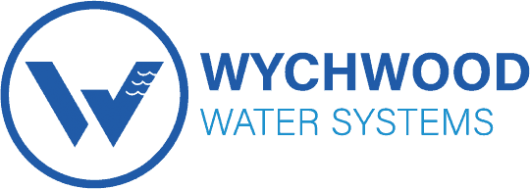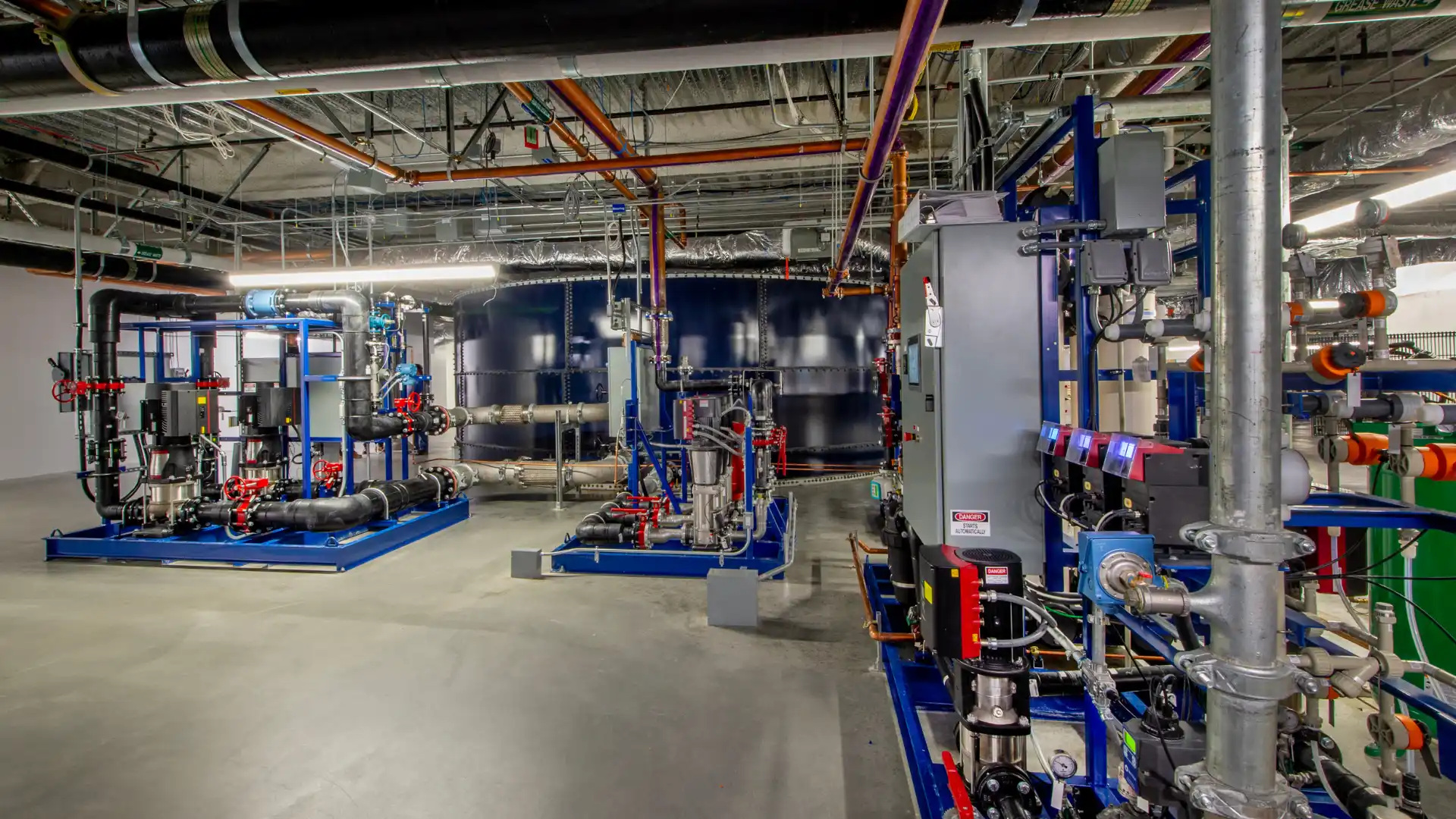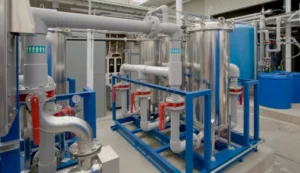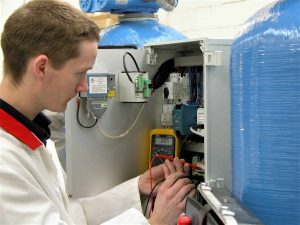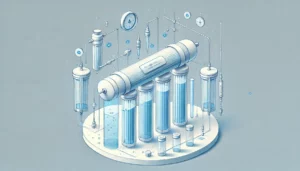Water is a crucial resource in industrial operations, and managing it efficiently is more important than ever. Many industries face increasing water costs, regulatory pressures, and sustainability challenges. Water recycling systems offer a smart, cost-effective solution to these problems.
In this guide, we explore the top 5 benefits of water recycling systems and why they are becoming essential for industries looking to improve efficiency, reduce costs, and meet environmental targets.
What Are Water Recycling Systems?
Water recycling systems treat and reuse wastewater or process water, reducing the need for fresh water intake. These systems utilise various purification techniques, such as:
- Filtration – Removes suspended particles.
- Reverse Osmosis (RO) – Eliminates dissolved salts and contaminants.
- Continuous Electro Deionisation (CEDI) – Produces ultrapure water.
By integrating these technologies, businesses can reclaim and repurpose water, reducing their overall consumption and environmental impact.
Top 5 Benefits of Water Recycling Systems
1. Reduce Water Costs
One of the biggest advantages of water recycling systems is cost savings. By treating and reusing wastewater, industries can:
- Lower water intake costs by reducing dependency on municipal water sources.
- Cut wastewater discharge fees, which can be expensive depending on regulations.
- Minimise energy use, as less water needs to be pumped, treated, and transported.
UK Fact: The UK water recycle and reuse market is projected to grow from USD 676.7 million in 2023 to USD 1,268.6 million by 2030, driven by increasing industrial adoption (Grand View Research).
2. Improve Sustainability & Meet Regulations
With stricter environmental regulations worldwide, industries must take steps to reduce their water footprint. Water recycling helps businesses:
- Comply with local and global water discharge regulations.
- Reduce reliance on freshwater sources, protecting natural ecosystems.
- Achieve corporate sustainability goals, which enhances brand reputation.
UK Case Study: Southern Water’s Hampshire Water Transfer and Water Recycling Project provides an additional 90 million litres of water daily from Havant Thicket reservoir during drought conditions (Water Reuse Europe).
3. Minimise Wastewater Discharge & Pollution
Untreated wastewater can contain harmful chemicals, heavy metals, and pollutants. Water recycling:
- Reduces harmful discharges into rivers and oceans.
- Lowers the risk of environmental fines for non-compliance.
- Prepares businesses for stricter future water regulations.
UK Example: The Pods Leisure Centre in Scunthorpe implemented a greywater recycling system treating 10,000 litres daily, reducing reliance on freshwater sources (Aqua-lity).
4. Increase Operational Efficiency
Many industries require consistent, high-quality water for production. Water recycling ensures:
- A stable water supply, reducing downtime due to shortages.
- Consistent water quality, improving product standards.
- Less strain on municipal water systems, preventing service disruptions.
UK Sustainability Project: The Hockerton Housing Project in Nottinghamshire showcases effective rainwater harvesting and on-site recycling as a model for sustainability (Hockerton Housing Project).
5. Future-Proof Against Water Scarcity
As global water shortages increase, industries must prepare for future risks. Water recycling:
- Protects businesses from water scarcity issues.
- Reduces dependency on external suppliers.
- Ensures long-term cost stability by controlling internal water use.
Industries That Benefit the Most from Water Recycling
- Many industries have successfully integrated water recycling systems, including:
- Manufacturing – Reduces production costs and waste.
- Food & Beverage – Ensures clean water for processing.
- Pharmaceuticals – Meets stringent water purity requirements.
- Automotive – Cuts costs in painting and cooling systems.
- Construction & Mining – Provides sustainable water solutions in remote areas.
How Wychwood Water Can Help
At Wychwood Water, we design and install custom water recycling systems tailored to your industry’s needs. Whether you need filtration, reverse osmosis, or CEDI solutions, we provide:
- Energy-efficient designs for cost savings.
- Scalable solutions for small to large-scale operations.
- Comprehensive servicing & support to maintain system performance.
FAQs About Water Recycling Systems
Q: How much water can be saved with a recycling system?
A: This depends on the system, but many industries see a 30-70% reduction in water usage.
Q: Are water recycling systems expensive?
A: While there is an initial investment, long-term cost savings on water and wastewater fees outweigh the upfront cost.
Q: Can water recycling systems be customised?
A: Yes! Our solutions are designed specifically for your industry and water requirements.
Get Started Today!
Want to reduce costs and improve sustainability?
Contact Wychwood Water today to find the right water recycling system for your business!
